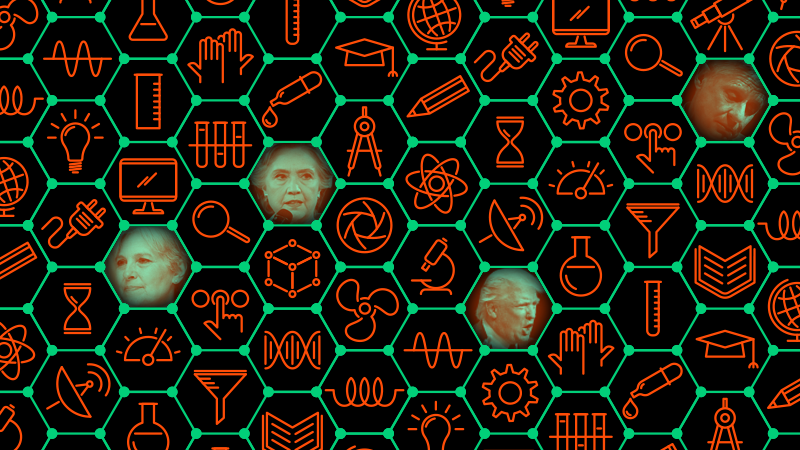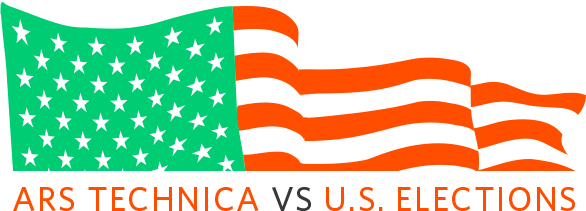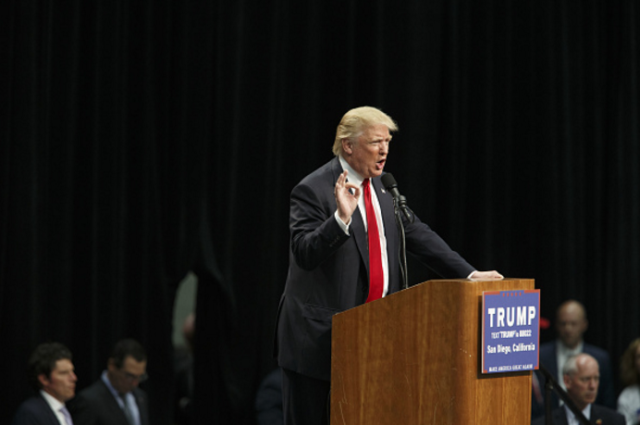
"I believe in science."
With that comment, said during her acceptance speech with a bit of a bemused smile, Hillary Clinton sought to differentiate herself from Donald Trump. The Democratic presidential nominee next noted a consequence of that belief: climate change is real, and we can do something about it.
Thus far, climate science is playing an unexpectedly large role in this campaign. Three of the four candidates from significant parties—Democratic, Green, Libertarian—have indicated they accept the scientific community's conclusions on the topic. Inevitably, that acceptance leads to consequences for energy policy, so it's difficult to separate the two.
But science is playing a role in other ways, as well. Issues such as vaccines and the space program have been mentioned by the candidates. And all four candidates have felt compelled to answer 20 science policy questions posed by the Science Debate organization.

We have invited all four of these campaigns to discuss science and energy issues with Ars. As of this writing, only an advisor from the Trump campaign responded. Still, it's possible to learn a lot about the candidates' positions based on public statements and campaign material regarding a handful of high-profile scientific issues.
Can we afford science?
For many scientists, the only way to sustain an active research career is through federal funding. This can be direct—organizations like the Department of Energy and NOAA employ many scientists—or indirect, through research grants. For many of the federal agencies that fund research, funding has barely kept pace with inflation for well over a decade, leading to declines in real dollar terms.
Since the cost of having access to the latest and greatest research equipment—from supercomputers to DNA sequencers—tends to increase faster than inflation, this has caused problems. Grant application success rates have plunged, highly trained scientists have given up on research, and most research organizations have become broken records, constantly announcing that more money is needed.
All of this means it's impossible to discuss science policy without discussing budgetary policy first. While anyone's spending plans are likely to face pressure from the many conservatives currently serving as the majority of the House of Representatives, we'll assume for the sake of this discussion that at least some of the new president's priorities are enacted. So, are any of the candidates likely to be able to boost science funding?
For at least two candidates, the answer is no, and their budgetary priorities are likely to force scientific agencies to cut back further. Libertarian nominee Gary Johnson, for example, promises a balanced budget without any new taxes, which would clearly necessitate spending cuts. Johnson has given no indication that science funding would be immune from those cuts.

Republican nominee Donald Trump hasn't given a date for when he'd balance the budget (though he says it is a priority), but he plans to cut taxes for all incomes, eliminating the estate tax and providing a significant child care credit. These cuts would obviously significantly decrease tax income. While Trump claims that increased economic activity would counteract that drop, previous promises of this sort have never been matched by reality.
Nevertheless, Trump seems to be anxious to spend money on science. "Though there are increasing demands to curtail spending and to balance the federal budget, we must make the commitment to invest in science, engineering, healthcare, and other areas that will make the lives of Americans better, safer and more prosperous," he told Science Debate. "We must have programs such as a viable space program and institutional research that serve as incubators to innovation and the advancement of science and engineering in a number of fields."
All of which suggests that some funding for science may be preserved in a Trump administration. "In a time of limited resources, one must ensure that the nation is getting the greatest bang for the buck," he clarified. Whether preservation is possible as budget deficits explode is questionable.
The remaining two candidates call for tax increases. Green Party nominee Jill Stein wants to see the tax system be more progressive, increasing taxes on corporations and higher income brackets. She'd use most of it to fund a massive green energy jobs program but also promises to make large cuts to military spending. Given that science is a relatively small part of the federal budget, there's a reasonable chance that the money can be found to continue or increase funding for it. Stein, however, has yet to describe any research priorities.
Clinton's tax statements are nearly identical: increase taxes on the wealthy and close corporate loopholes. She has also made specific promises for new funding in science, although those promises are focused on a limited number of areas of interest (like Alzheimer's) and may not benefit science as a whole. But medical research more generally may benefit, as Clinton has said that she plans on "scaling up our broader investment in the National Institutes of Health’s budget." She's also on record as stating, "I share the concerns of the science and technology community, including many in the industry, that the United States is underinvesting in research." Assuming some of her tax proposals are adopted, a Clinton administration may actually have the money to pay for it.
reader comments
382